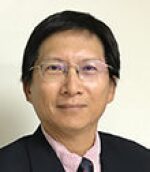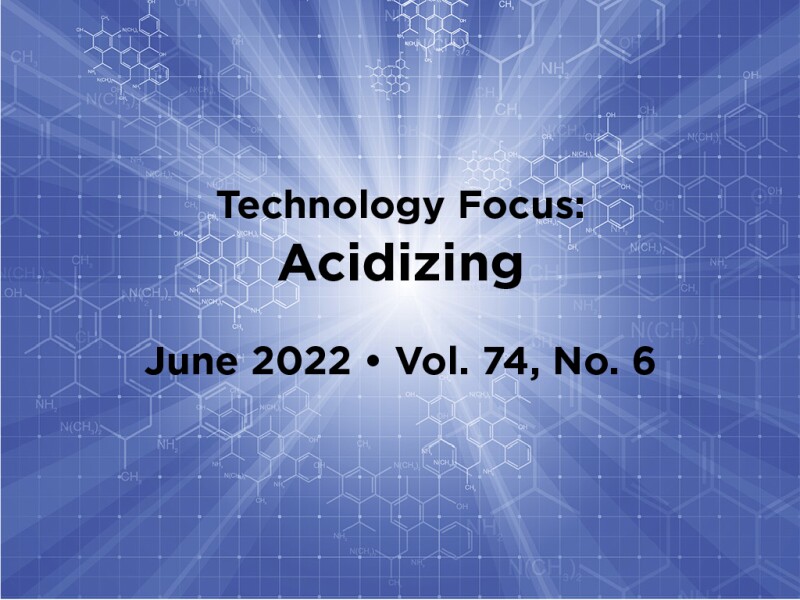The pulse of our industry is driven not only by simple supply and demand but also by political debate around climate change. It should be kept in mind that the majority of greenhouse-gas emissions is caused by using fossil fuels, not by producing them. Published data showed 5.6% of the global greenhouse-gas emission was from energy production through fugitive gas, compared with 73.2% from the use of energy in various industries, buildings, and transportation. The oil and gas industry is a provider of the basic needs for human activities instead of being the cause of major environmental damage. In fact, the world will have to rely on our knowledge of the subsurface to reach net zero through CO2 sequestration. Nevertheless, today, sustainability is a key matter in our industry. The knowledge we have accumulated in matrix acidizing can play an important role not only in supplying low-cost energy but also in contributing to the reduction of greenhouse gases.
It is pleasantly surprising to find a revival in sandstone acidizing. For many years, sandstone acidizing was becoming almost a lost art, overshadowed by carbonate acidizing and hydraulic fracturing. The complex reaction equilibrium of hydraulic fracturing and siliceous minerals, and hence the arduous sequencing of the fluids, impedes its effectiveness. A single-step formulation that works well in carbonate acidizing may mean broader acceptance by operators.
Matrix stimulation is not limited to pumping acids. Assessing reservoir properties and well-completion designs to properly integrate chemical formulations and mechanical tools, such as tunneling or jetting, can help extend the reach into the reservoir and, therefore, deliver the optimal economic result of the treatment.
Protecting well tubulars from corrosion is another critical consideration during acidizing. The reality of constructing wells with nonmetallic materials is still in the future. Use of corrosion-resistant liner can prove more reliable than chemical inhibitors, especially when long production life of the well is a critical consideration.
Acidizing has long been practiced, yet the evolution of chemicals seems slow to stagnant. However, huge amounts of data are available. Collecting and organizing them using artificial-intelligence algorithms will help us improve practices and perhaps even trigger the next breakthroughs. Let’s look forward to integrating the digital transformation with the development of acidizing products and technology in the future.
Recommended Additional Reading
Multilateral Jetting Technology Results in Increased Production in Offshore Field
Surface-Modified Nanoparticle Gelled-Acid System Stimulates Without Formation Damage
Single-Step Acidizing Technique Treats Severe Fines Damage
This Month’s Technical Papers
IPTC 21997 A Delayed In-Situ-Generated Acid System To Enhance Carbonate Acidizing by Albert Bokkers, Nouryon, et al.
SPE 208807 Stimulation Treatment Design Compatible With Glass-Reinforced-Epoxy Lining by Anastasia Bird, BP, et al.
IPTC 22665 Low-Viscosity Polymer Free Acid Retarded System, a Novel Alternative to Emulsified Acid: Successful Application in West Kuwait Field by Salem Hamad Al-Sabea, Kuwait Oil Company, et al.

Frank Chang, SPE, is a petroleum engineering consultant in production technology with Saudi Aramco, which he joined in 2012. He manages a portfolio of projects focused on developing new technologies in hydraulic fracturing, carbonate stimulation, formation-damage removal, corrosion and scale mitigation, and sand control. Chang started his career with Stimlab in 1992 after earning a PhD degree in petroleum engineering from the University of Oklahoma. He joined Schlumberger in 1996. Chang progressed from development engineer to engineering adviser during his 16-year tenure at Schlumberger, where he was involved in development of several new products and technologies in sand control, fracturing, acidizing, and perforating. Chang is an author of the SPE acidizing monograph published in 2016. He holds 28 patents, is an author of more than 50 technical papers, and was named an SPE A Peer Apart honoree in 2015. Chang serves as executive editor of the SPE Production & Operations journal and is a member of the JPT Editorial Advisory Board. He can be reached at fakuen.chang@aramco.com.

